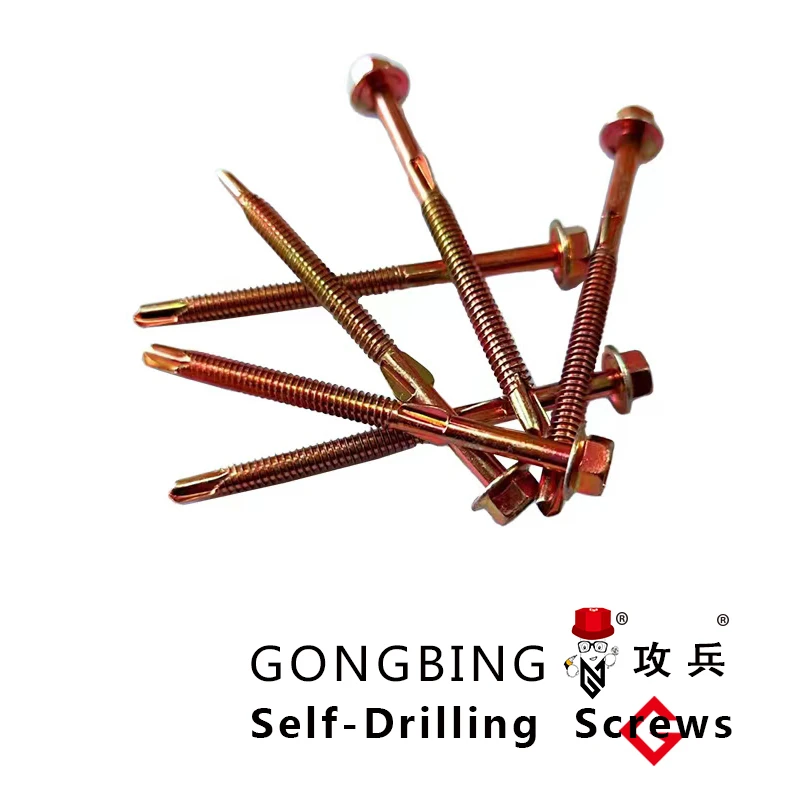Self-Locking Bolts for Secure and Efficient Connections in Various Applications
Self-Fastening Bolts A Revolution in Fastening Technology
In the world of manufacturing and construction, the importance of reliable fastening methods cannot be overstated. Traditional bolts and nuts have served their purpose for centuries, but advancements in technology have led to the development of self-fastening bolts, which offer enhanced efficiency and reliability in a wide range of applications. This article explores the concept, benefits, and applications of self-fastening bolts, highlighting their role in modern industries.
What are Self-Fastening Bolts?
Self-fastening bolts are innovative fastening devices that utilize mechanisms to secure themselves without the need for additional tools or components. Unlike traditional bolts, which require a nut to accompany them for fastening, self-fastening bolts are designed to keep themselves tightened under various conditions. This is achieved through various engineering solutions such as ratcheting mechanisms, unique thread designs, or elastic materials that allow for automatic engagement and disengagement.
Benefits of Self-Fastening Bolts
1. Time and Labor Efficiency
One of the most significant advantages of self-fastening bolts is the reduction in assembly time and labor costs. Traditional bolting often requires multiple steps, including threading the bolt through the components and securing it with a nut. Self-fastening bolts streamline this process, allowing for quicker assembly and disassembly, which is particularly beneficial in industries where time is critical, such as automotive manufacturing and construction.
Self-fastening bolts can significantly enhance the integrity of a fastening joint. Traditional bolts can loosen over time due to vibrations or thermal expansions. In contrast, the self-locking features of these bolts help maintain a consistent clamping force, reducing the likelihood of loosening and ensuring a more secure connection. This reliability contributes to overall safety and performance, particularly in high-stress environments.
3. Versatility
self fastening bolts

Self-fastening bolts come in various designs and materials, making them suitable for a wide range of applications. Whether in automotive, aerospace, electronics, or construction, these bolts can be tailored to meet specific requirements. Their adaptability allows engineers and manufacturers to incorporate them into various projects, increasing design flexibility and enabling innovative solutions.
4. Reduced Maintenance
With self-fastening bolts, the need for regular tightening and maintenance is minimized. This not only saves time for operators and maintenance personnel but also reduces the long-term costs associated with equipment upkeep. In industries where machinery downtime can result in significant losses, the reliability of self-fastening bolts can be a game-changer.
5. Enhanced Safety
The self-locking mechanism of these bolts contributes to improved safety in applications where joint integrity is critical. In sectors such as aerospace and automotive, a failure in fastening could have catastrophic consequences. By ensuring that joints remain secure under various conditions, self-fastening bolts help prevent accidents and enhance overall safety for workers and consumers alike.
Applications of Self-Fastening Bolts
Self-fastening bolts find applications across multiple industries. In the automotive sector, they are used in assembly lines, where reducing cycle times is essential for productivity. These bolts are also increasingly popular in the aerospace industry, where weight savings and reliability are of utmost importance.
In construction, self-fastening bolts offer advantages in scaffolding and heavy equipment assembly, where fastening under load is often required. Moreover, in the electronics field, the small size and precision offered by self-fastening bolts are advantageous for securing components in compact devices.
Conclusion
As industries continue to evolve and demand more efficient, reliable, and safe fastening solutions, self-fastening bolts represent a significant advancement in fastening technology. With benefits ranging from time savings to enhanced safety, these innovative devices are becoming staples in various applications. As research and development in materials and engineering techniques continue, the future of self-fastening bolts looks promising, paving the way for even more revolutionary applications and solutions in the years to come. Embracing this technology is not just a choice; it is a step towards a more efficient and secure industrial landscape.
-
Weatherproof Plastic Expansion Anchors for OutdoorNewsJun.06,2025
-
Sustainability in the Supply Chain: Eco-Friendly TEK Screws ProductionNewsJun.06,2025
-
Load-Bearing Capacity of External Insulation FixingsNewsJun.06,2025
-
Double Head Bolts: Enhancing Efficiency in Industrial MachineryNewsJun.06,2025
-
Corrosion Resistance in Chipboard Screws: Coatings for Wholesale DurabilityNewsJun.06,2025
-
Butterfly Toggle Bolts : Enhancing Structural ResilienceNewsJun.06,2025
